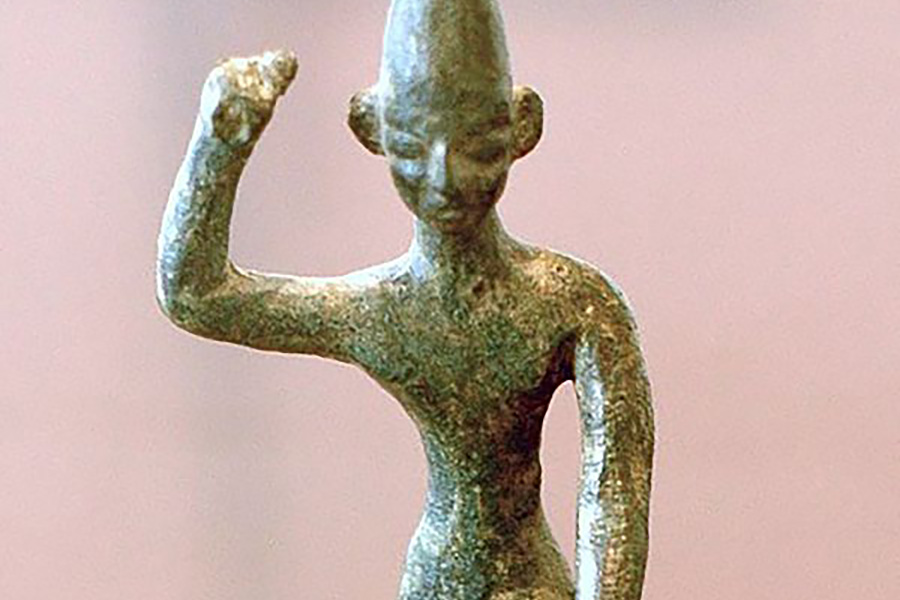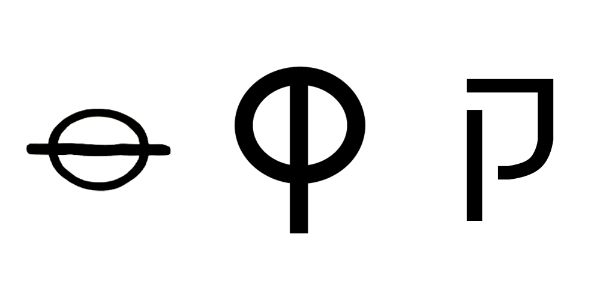The word Bal (𐤁𐤋) means “mind” meaning the element, part, substance, or process that reasons, thinks, feels, wills, perceives, judges, etc.
The Paleo-Hebrew language or the original language of the Ābarayam is one spoken with an emphasis on the rauakh (breath, wind, spirit). With the language of the Ābarayam, each letter has a meaning and a number associated with it that adds meaning to each word they’re used with. Below you will be able to learn more about the letter in Ancient Hebrew, Yiddish Hebrew, Greek, and much more.
Letter Meanings
| Letter | Meaning |
|---|---|
| 𐤁 (b) – ba | House, family, “in” Prefix: Converts a word into “Family of” or “in…”, “at…” “with…” |
| 𐤋 (l) – la | staff, goad, control, toward, protect, authority, bind, yoke, lead Suffix: Forms diminutive (abbreviated) nouns when added to a noun. |
| Ābarayat Number | 32 = 2 (b) + 30 (l) |
| Hebrew Gematria | 23 = 2 (b) + 1 (a) + 20 (l) |
| English Gematria | 90 = 12 (b) + 6 (a) + 72 (l) |
| Simple Gematria | 15 = 2 (b) + 1 (a) + 12 (l) |
Based on the meaning of the letters the word could be defined as:
- “house of authority (power)”
- “family of binding”
- “family of staff”
- “in control”
- “house of control”
- “family of control”
- “family of protection”
- “house of protection”
- “in protection”
Definitions for 𐤁𐤋 / bal
| Language | Word | Transliteration | Pronunciation | Definition |
|---|---|---|---|---|
| Ābarayat | 𐤁𐤋 | bal | bale | a chief Babalay deity. |
| English | Bel | Bel | bel | signifying “lord” or “master”, |
| Hebrew | בַּל | Bel | bale | a chief Babylonian deity |
| Arabic | جرس | jaras | jaw-ras | bell, timbre, gong, cowbell |
| Greek | κύριος | kurios | koo’-ree-os | lord, master, sir; the Lord. |
Images for 𐤁𐤋 / bal


Definitions for 𐤁𐤋𐤉 / balay
When adding the 𐤉 (yad) to the end of a word, it creates a possessive of the original word. It can either signify “my…” or identify a member of a nation. For example, 𐤏𐤁𐤓 (Ābar) is the progenitor, but 𐤏𐤁𐤓𐤉 (Ābaray) is the singular descendant of him also known as a Hebrew.
| Language | Word | Transliteration | Pronunciation | Definition |
|---|---|---|---|---|
| Ābarayat | 𐤁𐤋𐤉 | balay | baley | without |
| English | without | without | with-out | with the absence, omission, or avoidance of; not with; with no or none of; lacking. |
| Hebrew | בְּלִי | beli | bel-ee' | a wearing out |
| Arabic | ||||
| Greek |
Images for 𐤁𐤋𐤉 / balay


Definitions for 𐤁𐤋𐤉𐤌 / balayam
When adding the 𐤌 (mayam) after the 𐤉 (yad) to the end of a word, it creates a plural of the original word. It can identify multiple members of a nation. For example, 𐤏𐤁𐤓 (Ābar) is the progenitor, but 𐤏𐤁𐤓𐤉𐤌 (Ābarayam) are the plural descendants of him also known as Hebrews.
| Language | Word | Transliteration | Pronunciation | Definition |
|---|---|---|---|---|
| Ābarayat | 𐤁𐤋𐤉𐤌 | balayam | bale-yawm | Belle |
| English | belle | belle | bel | a woman or girl admired for her beauty and charm. |
| Hebrew | ||||
| Arabic | ||||
| Greek |
Images for 𐤁𐤋𐤉𐤌 / balayam


Definitions for 𐤁𐤋𐤉𐤕 / balayat
When adding the 𐤕 (tau) after the 𐤉 (yad) to the end of a word, it creates a plural of the original word. It identifies the language or a sign of a nation’s existence. For example, 𐤏𐤁𐤓 (Ābar) is the progenitor, but 𐤏𐤁𐤓𐤉𐤕 (Ābarayat) is the language of him also known as Paleo-Hebrew language.
| Language | Word | Transliteration | Pronunciation | Definition |
|---|---|---|---|---|
| Ābarayat | 𐤁𐤋𐤉𐤕 | balayat | bale-yawt | Babylonian |
| English | Babylonian | Babylonian | bab-uh-loh-nee-uhn | of or relating to Babylon or Babylonia. |
| Hebrew | ||||
| Arabic | ||||
| Greek |
Images for 𐤁𐤋𐤉𐤕 / balayat


Classification
You can continue your studies of the words by viewing Strong’s entries for:




